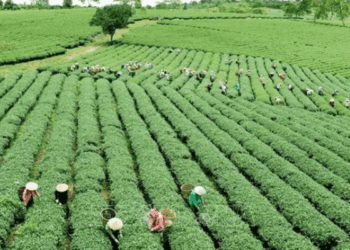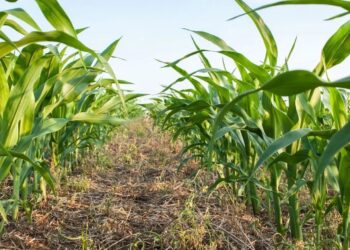Nigeria’s agriculture contributes roughly a quarter to its Gross Domestic Product (GDP) but garners only a sliver 4 percent of commercial bank lending, the horticulture sub-sector stands at a critical crossroads.
Rich with economic potential, yet starved of capital, Nigeria’s horticulture industry may finally be stepping into its long-overdue spotlight through the collaborative efforts of the Dutch-funded HortiNigeria programme and Nigeria’s own risk-mitigating powerhouse, NIRSAL Plc.
At a recent capacity-building event in Abuja, designed specifically for financial institutions, stakeholders gathered with one shared objective: to unlock sustainable financing for Nigeria’s horticulture sector.
This strategic engagement, jointly hosted by HortiNigeria and NIRSAL Plc, signals a turning point in efforts to transform the nation’s underfinanced horticulture landscape into a thriving engine of inclusive growth.
No doubt that agriculture remains Nigeria’s largest employer and a foundation of rural livelihoods. Yet, according to the Central Bank of Nigeria’s 2024 Q3 report, less than 5 per cent of total commercial lending flows into this vital sector.
Horticulture which is vegetables, fruits, and ornamentals suffers even more disproportionately due to its perceived risks: perishability, market unpredictability and seasonal volatility.
Already the minister of agriculture and food security, Abubakar Kyari, has urged financial institutions to prioritise investment in the horticulture sector, describing it as a high-impact, high-return driver of food security, employment and economic growth.
Kyari called on financial institutions to map the horticulture value chain, from seedling production to export and to design custom financial products such as seasonal loans, equipment leasing, and trade financing.
According to the minister, the sector remains underfinanced and vulnerable to climate and pest shocks without tailored financial solutions.
Kyari noted “Horticulture is not just a farming activity, it is a vibrant agribusiness ecosystem, It holds the key to job creation, improved nutrition, trade diversification, and inclusive economic growth.”
Mohammed Salasi Idris, Programme Director of HortiNigeria, noted, “Financing agriculture has always been difficult. Horticulture is even riskier in the eyes of banks. But it’s profitable if you understand it.”
To correct misperceptions, the four-day training assembled financial professionals with one goal, to demystify the horticulture value chain. Through technical workshops, value chain profiling, and real-time field visits, banks are being equipped with knowledge to assess and manage horticulture financing with confidence rather than caution.
Launched in 2021 and nearing its final year, the HortiNigeria initiative operates across Kano, Kaduna, Ogun, and Oyo States, targeting Lagos as a commercial hub. Its mission is bold yet clear: raise productivity, encourage youth participation, and promote sustainable farming through innovation.
According to Idris, the programme is introducing “improved seed varieties, less water-intensive cultivation, and reduced use of land and chemicals,” while embracing greenhouses in the south and open-field cultivation in the north.
So far, HortiNigeria has trained over 70,000 smallholder farmers, many of them young people and women. These efforts are paying off, with yield increases of 7 per cent in the North and over 200 per cent in the south-west.
However, insecurity remains a formidable challenge. “HortiNigeria had to abandon one of its locations in Kaduna due to insecurity,” Idris noted. “This has reduced available farmland and forced relocation to safer, but often less optimal, zones.”
To close the financing gap, Nigeria’s Nigeria Incentive-Based Risk Sharing System for Agricultural Lending (NIRSAL) Plc has taken center stage. In his keynote address, NIRSAL CEO Sa’ad Hamidu, stressed the urgency of unlocking capital, “Financial institutions must see horticulture not as a high-risk sector, but as a strong opportunity for profitable investment, rural empowerment, and national food security.”
NIRSAL is leveraging instruments like Credit Risk Guarantees, project structuring, value chain mapping, and weather-linked insurance to de-risk lending. With over N1.2 trillion facilitated in agricultural finance as of Q1 2025, NIRSAL is actively reshaping how banks perceive and approach agribusiness financing.
The Netherlands, a global leader in horticulture innovation, is backing the transformation with both funding and technical support.
Foluso Adejoro, policy advisor for food security and climate at the Netherlands Embassy, noted that Dutch investors many of whom are already embedded in Nigeria’s seed and greenhouse sectors are scaling up.
From East-West Seeds to Baker Brothers, interest is swelling, with 16 companies participating in the 2025 Lagos Agrifood Fair.
These Dutch firms are eyeing two value chains in particular: vegetables and potatoes. “These companies are not just interested in export, they are committed to long-term business partnerships that can reshape Nigeria’s agri-food systems.” Adejoro said.
Dr. Yusuf Dramani, IFDC Country Director, called the urgency of financial inclusion during his welcome address: “Agriculture’s role in our national economy is undisputed, but access to formal finance is still a major barrier—especially in horticulture.”
This is why IFDC and NIRSAL are jointly training financial institutions, to empower them with the tools to design inclusive credit products tailored for the unique dynamics of horticulture. This ecosystem approach is expected to break the inertia in lending and catalyse transformative investment in the sector.
The convergence of local innovation, international investment, and institutional risk mitigation marks a new chapter for Nigerian horticulture. But unlocking sustainable finance will require persistent collaboration, data-driven risk assessment, and continuous engagement with banks and investors.
If Nigeria can shift the narrative—from risk to opportunity then horticulture could be more than a footnote in agricultural policy. It could become a flagship for youth employment, economic diversification, and year-round food security.
As Dr. Hamidu said, “Let us work together to de-risk and finance the horticulture sector for the prosperity of our farmers, agribusinesses, our financial institutions, and our nation.”





